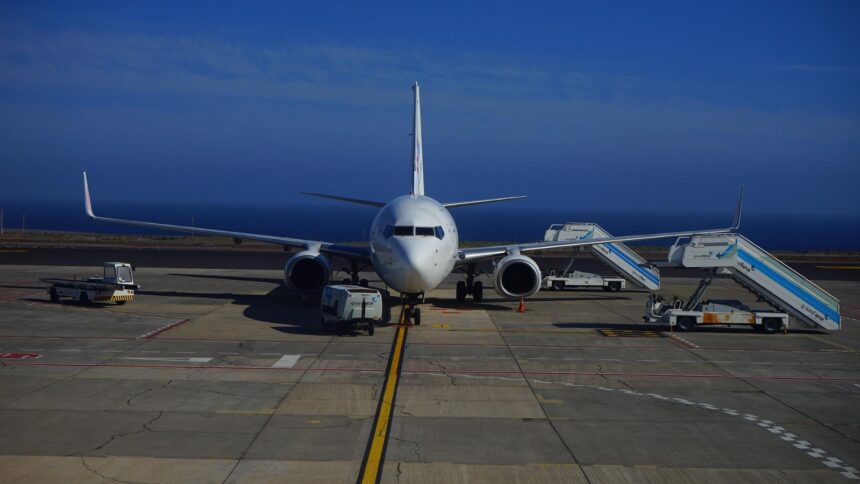Pakistan’s closure of its airspace for Indian airlines is bound to lead to some pain for the carriers, which will now have to contend with higher fuel burn and longer flight times for their international flights bound for destinations to India’s west from the country’s northern region, which houses its largest airport — Delhi’s Indira Gandhi International airport. West-bound international flights from other airports in North India, like Amritsar and Lucknow, are also going to be impacted.
’s review of recent flight paths of numerous international flights departing from the airport suggests that Indian carriers’ flights to Central Asia, the Caucasus, West Asia, Europe, the UK, and North America are bound to get impacted by Pakistan’s retaliatory action. According to industry insiders, while it is still too early to assess the impact, the airlines’ costs are bound to rise, which could translate into higher airfares for passengers. Additionally, as airlines from other countries can continue to overfly Pakistan, they may get a cost advantage over Indian airlines on the impacted routes.
The last time Pakistan closed its airspace for an extended period — in 2019 following the airstrikes — Indian airlines lost around Rs 700 crore due to higher fuel expenses and operational complications that came with longer routes many of their flights were forced to take. Air India was the worst-affected Indian carrier at the time, as it operated more west-bound international flights than other airlines. Moreover, it was and continues to be the only Indian airline that operates long-haul and ultra-long-haul flights to Europe and North America.
“Due to the announced restriction of Pakistan airspace for all Indian airlines, it is expected that some Air India flights to or from North America, UK, Europe, and Middle East will take an alternative extended route. Air India regrets the inconvenience caused to our passengers due to this unforeseen airspace closure that is outside our control. We would like to reiterate that at Air India, the safety of our customers and crew remains top priority,” group airline Air India posted on social media platform X (formerly Twitter).
IMPORTANT UPDATE:
Due to the announced restriction of Pakistan airspace for all Indian airlines, it is expected that some Air India flights to or from North America, UK, Europe, and Middle East will take an alternative extended route. Air India regrets the inconvenience caused…
— Air India (@airindia)
In its initial reaction to the development, India’s largest airline IndiGo issued a travel advisory to passengers. Over the past two years, IndiGo has rapidly expanded its international network to the west of India by launching flights to Central Asia and the Caucasus region bordering Europe.
“Due to the sudden announcement of air space closure by Pakistan, a few of our international flights are being impacted. We understand the inconvenience this may cause and our teams are doing their best to help you reach your destination at the earliest. We encourage you to check the latest flight status. If your flight is impacted, please explore flexible rebooking options, or claim a refund through our website,” IndiGo said.
For instance, IndiGo’s from Delhi to Baku and Tbilisi by around one-and-a-half hours, and cancelled its Delhi-Almaty, flight according to information on the carrier’s website.
Indian carriers have so far not commented on the likely financial impact of . According to sources, the airlines are in the process of assessing the initial impact and are currently focused on realignment of the routes that are bound to get impacted. A clearer picture of the impact—financial as well as operational—is likely to get clearer over the next few days.
All major Indian airlines operate international flights to destinations to the west of the country, and many of these flights were routinely overflying Pakistan. Air India operates flights to West Asia, Europe, the UK, and North America, while IndiGo operates flights to West Asia, Turkey, the Caucasus, and Central Asia. Air India Express, Akasa Air, and SpiceJet’s west-bound international flights are to destinations in West Asia.
Following airstrikes by Indian Air Force in Balakot, Pakistan had fully closed its airspace on February 26, 2019. It eventually fully opened its airspace for overflying in July 2019. By June, Indian airlines’ collective loss due to the airspace closure was pegged at over Rs 550 crore, according to data furnished by the Ministry of Civil Aviation at the time. The figure, according to industry insiders, was around Rs 700 crore till mid-July of that year, when Pakistan completely removed the restrictions.
In 2019, due to closure of routes that allowed west-bound flights from airports in north India to enter Pakistani airspace — instead of taking a detour to Gujarat or Maharashtra and then turning right for Europe, North America or West Asia — most flights saw their durations rise by at least 70-80 minutes. Air India’s flights from Delhi to Chicago had to stop in Europe for refuelling. Further, IndiGo’s flight from Delhi to Istanbul, which was then being operated by narrow-body aircraft, had to make a refuelling stop at Doha.








